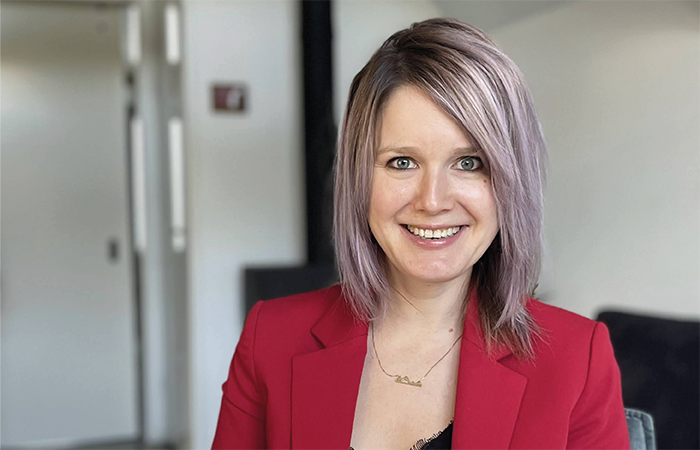PhD candidates often don’t know what it really means to “do a PhD.” A common feature of young scientists interested in a PhD is a strong interest for research – but research is only one of the many aspects of a doctorate. Often, they aren’t fully aware of all the tasks that compose a PhD trajectory and can feel overwhelmed when tasks start to pile up – including those they weren’t expecting. That’s not surprising to me, as there’s only little information given to students about the PhD trajectory.
Moreover, with very few positions available, the competition can be fierce – calling for a perfect application to increase the chances of getting an interview. Unfortunately, many candidates don’t realize this and also struggle with their applications.
And then of course comes frustration, because academia is not a world where things happen quickly. Experiments take time, PhD students are dependent on supervisors and collaborators who are often very busy and time is also spent doing other tasks rather than actual research. Therefore, output is delivered very slowly and they don’t see the immediate impact of their hard work.

Credit: Arian Khoshchin
Indeed, hard work is not directly correlated to success and output in a PhD – and that is a hard pill to swallow. A PhD trajectory is hugely influenced by other factors, which you often cannot fully control. This could be supervisors (for example, how supportive they are, how busy they are, their network and mentoring skills, and so on), the infrastructure (for example, access to state-of-the-art instrumentation, troubleshooting, training opportunities, and so on), and collaborators (especially if the PhD project is part of a bigger consortium, where PhD students depend on each other’s results).
Doing a PhD or any type of study/research in a field like analytical science can be a rollercoaster, with a lot of ups and downs. Having colleagues and friends who can be present and supportive during these moments will make a huge difference. I spent years troubleshooting my instrument during my PhD, wondering why I couldn’t get the results I wanted to have. That was frustrating and very demotivating. However, I could always count on the support of my three PhD office mates – we cried and laughed a lot together. They were a crucial aspect in my PhD trajectory, and we’re still friends more than 10 years later.
When I was a PhD student, I didn’t truly realize that I was only at the beginning of my career, and that the entire journey would be much more exciting than the end destination. I thought that I had to have my career set in stone in the first years afterwards – I couldn’t have been more wrong! When I discuss the future with our Master and PhD students, I feel their stress in finding the perfect first job – the one that “ticks all the boxes.” As Mark Nepo said: “There are no wrong turns, only unexpected paths.”
Ultimately, the best advice I can give is to talk to people. Talk to your colleagues and peers, your supervisor(s), teachers, and other possible mentors to seek guidance and support when going through challenging periods or having questions about their future. Also, talk to other scientists during symposiums or conferences to broaden your professional horizons. Be careful to actually listen to their stories to get insights and inspiration! Sharing experiences, fears, ambitions, and ideas among peers and mentors brings not only possible solutions or answers to questions, but also the feeling of belonging to a community. That’s why I really believe in the power of networking.
At the beginning of my career, I was also very intimidated as an introvert having to network in a foreign language that I didn’t master. However, I quickly understood that what people called “networking” simply meant partake in discussion with another human and express genuine interest in them.
To overcome networking challenges, I usually give the following advice: first, consider networking as a conversation between two (or more) humans. It’s not different from this! Next, if you’re intimidated by approaching a big “superstar” during a conference, start with approaching other young scientists during poster sessions or workshops. Simply introduce yourself and ask whether they can tell you more about their work. The first few minutes may feel awkward, but once the conversation has started, you’ll feel yourself start to relax. Also, consider contacting people through LinkedIn, and even invite them to have a coffee and small chat with you the next time you are at the same event. And finally, be as authentic as possible. There’s no need to play a role; just be yourself! I promise that you’ll meet people from all ages and all cultures – people who will enrich your life beyond the professional aspects.
It’s also important to take advantage of the technology era we live in – join online communities to gather and share information with others. That’s also one of my missions with my company NextMinds: building a strong community of young scientists where they can learn tips and tricks to better navigate their academic journey, while being in a safe environment. It’s important to surround yourself with positivity and enjoy the journey – after all, it sets the tone for your career and can influence other aspects of your life.
The struggles of early-career scientists have become a great inspiration to Isabelle. In a recent interview, she introduced us to “NextMinds” – her newly launched mentoring platform designed for early career scientists to help them navigate academia.




